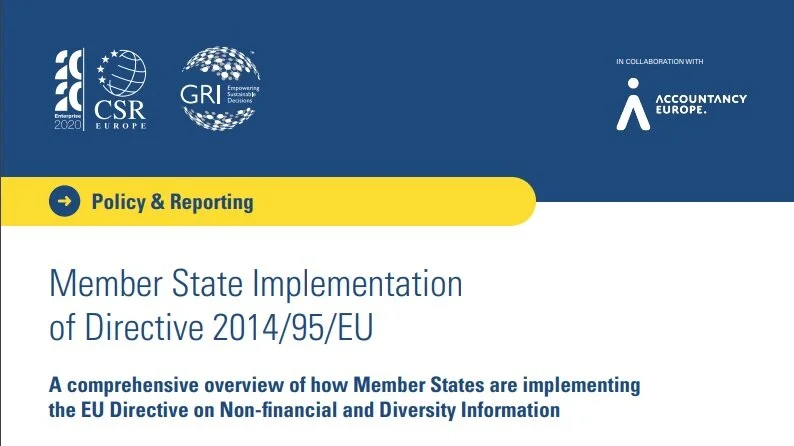What Comes Next for a Responsible and Transparent Corporate Tax Behaviour?
Fair taxation remains a cornerstone of Europe’s post-covid-19 recovery.
After the adoption of the Commission’s Action Plan for fair and simple taxation, CSR Europe, in collaboration with CSR Sweden, took the pulse of companies, policymakers, and stakeholders at the SDG Roundtable on Responsible and Transparent Tax Behaviour.
Watch the dialogues on ESG and sustainable finance at the European SDG Summit 2020
A fair, efficient, and sustainable taxation can speed up the Covid-19 recovery efforts of the internal market. However, each year, the European Union loses €35bn due to corporate tax avoidance and for many companies, corporate tax responsibility is still a sensitive topic. To facilitate an open dialogue between companies, stakeholders and policymakers on tax, CSR Europe, in collaboration with CSR Sweden, organized the European SDG Roundtable on Responsible and Transparent Tax Behaviour, hosted on 29 October.
Companies like Iberdrola and Vattenfall shared their journey towards responsible and transparent tax behaviour, engaging with representatives of the European Commission on the upcoming, deep reform of the corporate tax system foreseen by the Action Plan for Fair and Simple Taxation. Before the end of the year, the Commission will set out the next steps, following up on the global discussions in an Action Plan for Business Taxation for the 21st century.
Here are three key takeaways:
1. Taxation should be aligned with Value Creation
A business structure should be connected to the location(s) where the multinational substantially has real economic activities. Furthermore, the set-up of a certain structure should be commercially driven and not mainly intended to lower taxes. Some multinationals already proactively communicate transparently and publicly on their principles concerning tax management and tax planning in their tax strategy or other (tax) policy documents. Iberdrola’s tax strategy ensures compliance with applicable tax laws and regulations and seeks to establish an appropriate coordination of tax practices, all within the framework of fulfilling the corporate interest and supporting a long-term business strategy that avoids tax risks and inefficiencies in the implementations of business decisions. With respect to tax planning, the company optimises its tax arrangements by looking closely at its substance and the real economic value of activities in each country. Iberdrola commits to engaging only in those (intercompany) transactions that have a sound business rationale.
2. The journey towards responsible and transparent tax behaviour is still long
From a policy perspective, there is still a lot to be done, especially when it comes to the taxation of the digital economy. However, further steps forward have been taken recently, on 22 November, at the G20 Summit, where leaders adopted the Riyadh Declaration and agreed to find a consensus-based solution for a globally fair, sustainable, and modern international tax system by mid-2021, built on the ongoing work of the Organisation for Economic Co-operation and Development (OECD).
3. Tax transparency is here to stay
The Tax Action Plan is a set of 25 initiatives that the European Commission will implement between now and 2024 to make taxation fairer, simpler, and more adapted to modern technologies. The Tax Action Plan sets out measures to:
Reduce tax obstacles and unnecessary administrative burdens for businesses in the Single Market.
Improve the business environment
Enhance business competitiveness and contribute to economic growth
A wider group of stakeholders, including NGOs and investors are currently looking at how companies are acting in relation to their tax policies and ask for more transparency. Some companies have already developed a mature approach to implement sustainable tax practices and be transparent about it with a mixed experience of challenges and opportunities but an overall positive assessment about this choice in terms of rebuilding trust with society and showing consistency with their wider approach to sustainability
The roundtable on Responsible and Transparent Tax Behaviour was part of the pillar “Sustainable Markets and Finance” of the SDG Summit 2020 and stems from CSR Europe’s community of practice on responsible tax. Click here to access for free the recording of this webinar, or here if you wish to explore the recordings of other sessions focused on sustainable finance.
For more information:
Markets Manager












